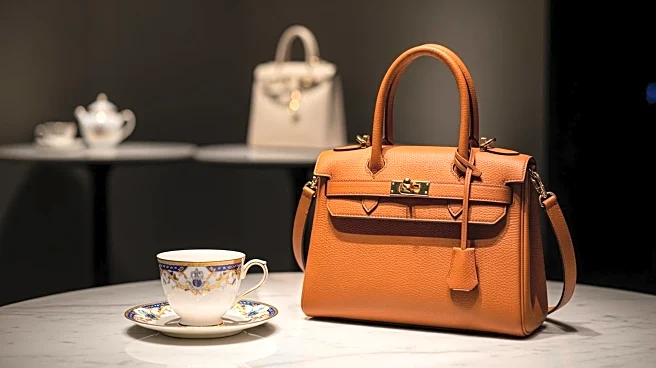What's Happening?
Luxury brands such as LVMH and Hermès are shifting their strategies in China from rapid expansion to deeper engagement with wealthy consumers. This change comes as brands aim to recover from a post-pandemic
sales slump by offering personalized experiences like intimate dinners and exclusive shopping areas. Despite a rally in European luxury stock valuations, the Chinese market remains uncertain due to global trade policies and economic fluctuations. The proportion of luxury goods sold to mainland Chinese consumers has decreased from a peak of one-third to around 22 percent.
Why It's Important?
The strategic shift by luxury brands in China highlights the importance of personalized consumer experiences in driving sales recovery. As brands focus on market share rather than growth, they aim to create their own demand through value-driven experiences. This approach could influence global luxury market strategies, especially in regions facing economic uncertainties. Brands that successfully engage with high-value consumers may gain a competitive edge, potentially reshaping the luxury retail landscape.
What's Next?
Luxury brands are likely to continue investing in personalized experiences to stimulate consumer spending. The success of these strategies could lead to similar approaches in other markets facing economic challenges. Additionally, brands may explore further collaborations and innovative retail concepts to maintain consumer interest and loyalty.
Beyond the Headlines
The focus on personalized experiences raises questions about the sustainability of luxury consumption and the ethical implications of targeting high-value consumers during economic downturns. Brands may need to balance exclusivity with broader accessibility to ensure long-term growth.









